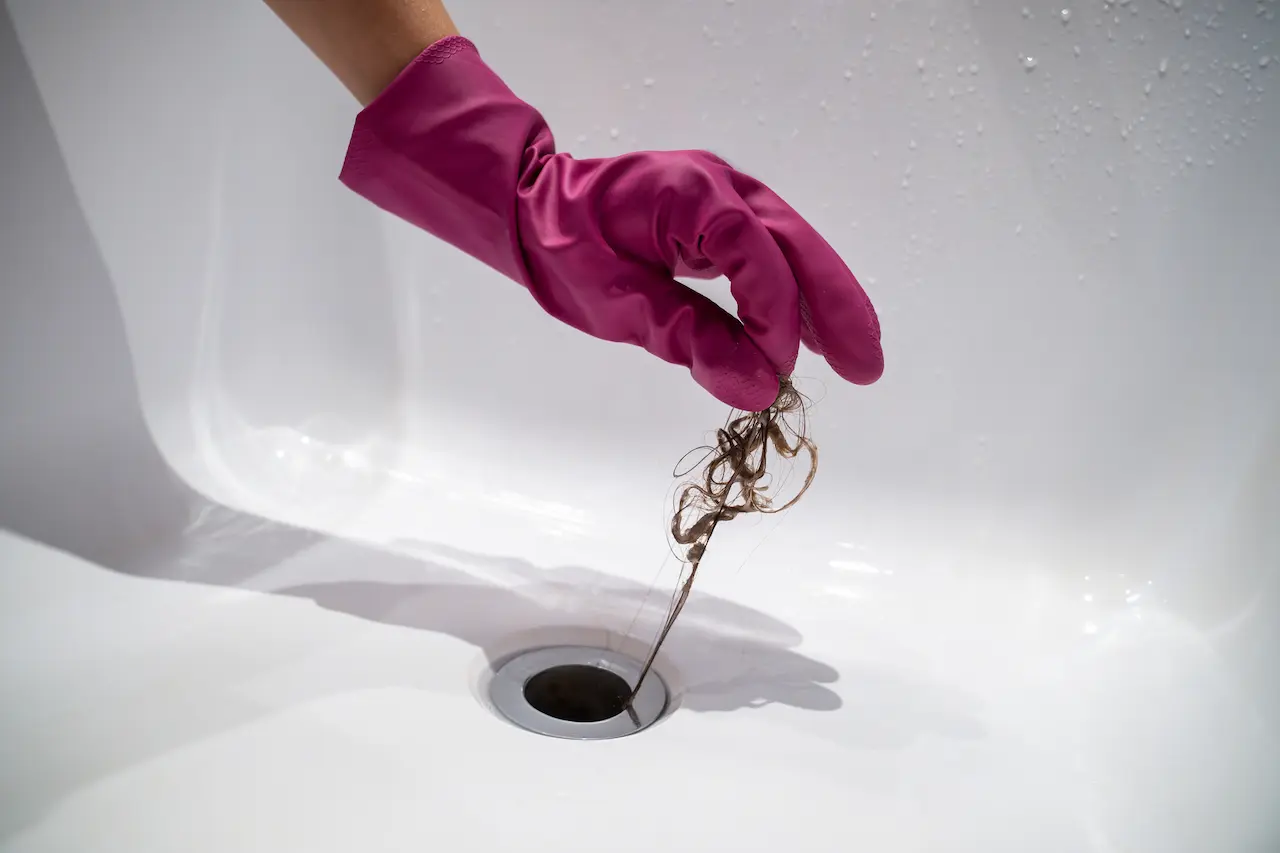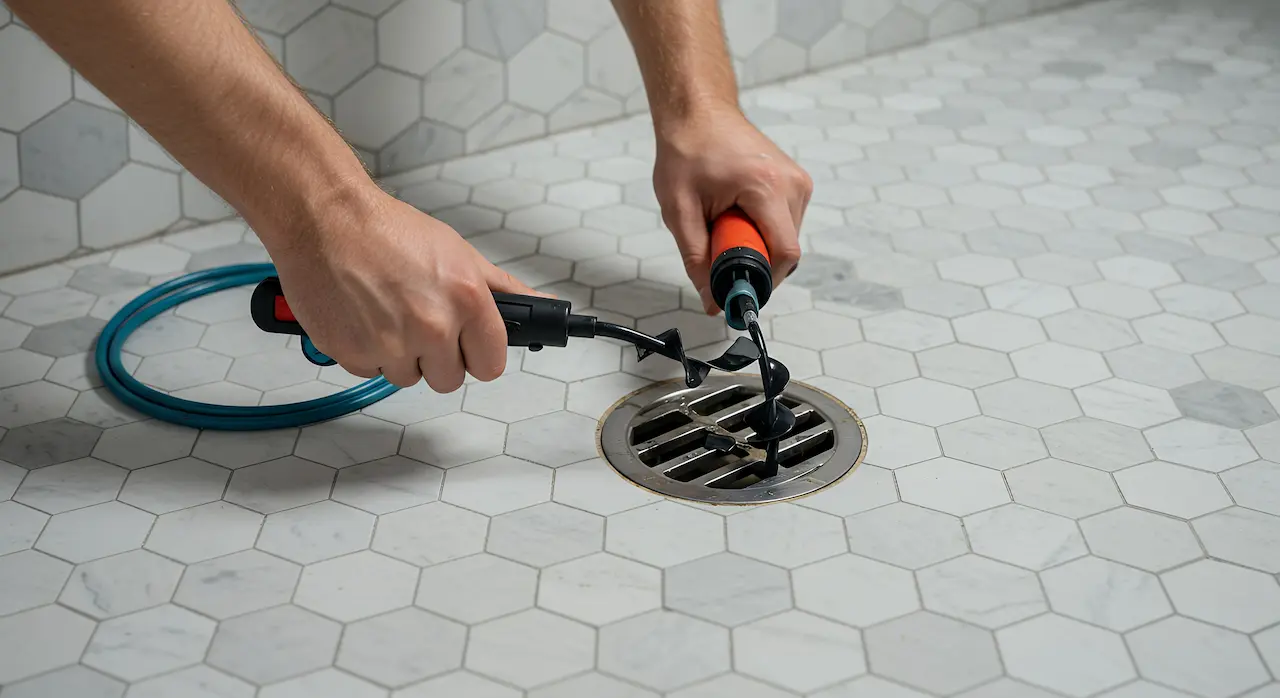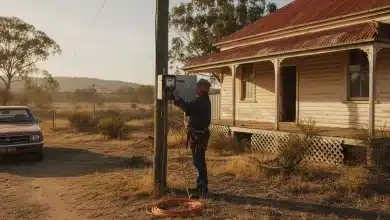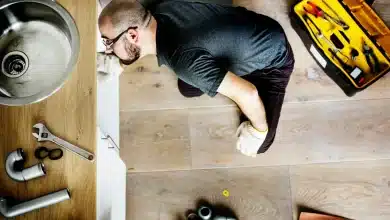The Top 5 Drain Blockage Myths
The Top 5 Drain Blockage Myths – Busted by a Plumber
Few household problems are as frustrating as blocked drains. From slow-draining sinks to foul odors and backed-up toilets, drainage issues can disrupt daily life and lead to costly repairs if not handled properly. Unfortunately, many homeowners fall for common misconceptions about drain blockages, often making the problem worse with ineffective DIY “solutions.”
As professional plumbers, we’ve seen it all—and today, we’re debunking the top five drain blockage myths to help you avoid unnecessary headaches and solve your blocked drains problem.
Myth #1: Chemical Drain Cleaners Are a Safe Fix
The Claim: Pouring a chemical drain cleaner down a clogged pipe will quickly dissolve the blockage without any hassle.
The Truth: While these products may provide a temporary fix, they often cause long-term damage. Here’s why:
- Corrosion: Harsh chemicals eat away at pipes, especially older metal or PVC plumbing, leading to leaks.
- Ineffectiveness on Major Blockages: They only clear surface-level build-up, leaving deeper clogs untouched.
- Health and Safety Risks: The fumes are toxic, and skin contact can cause burns.
Plumber’s Recommendation: Use a plunger or drain snake for minor clogs. For stubborn blockages, call a professional to avoid pipe damage.

Myth #2: Hot Water Flushes Away Grease
The Claim: Pouring boiling water down the sink after cooking will prevent grease build-up.
The Truth: While hot water may temporarily liquefy grease, it quickly solidifies again as it cools—especially in colder pipes. This creates a sticky build-up that traps food particles and worsens blockages over time.
Plumber’s Recommendation:
- Scrape grease into a container and dispose of it in the trash.
- Use a degreasing dish soap with warm (not boiling) water to help break down residual oils.
Myth #3: Lemons and Baking Soda Keep Drains Clean
The Claim: A monthly treatment of baking soda and lemon juice (or vinegar) will keep drains fresh and clog-free.
The Truth: This DIY remedy may neutralize odours, but it does nothing to remove existing build-up or prevent blockages. The fizzy reaction looks impressive but lacks the power to break down hair, soap scum, or grease.
Plumber’s Recommendation:
- For odour control, try an enzyme-based drain cleaner (safe for pipes).
- For actual clogs, mechanical methods like a drain snake are far more effective.
Myth #4: All Drain Covers Prevent Blockages
The Claim: Any strainer or drain cover will stop debris from entering pipes.
The Truth: While drain covers help, not all are created equal. Cheap, wide-holed strainers allow small food particles and hair to slip through, accumulating into clogs over time.
Plumber’s Recommendation:
- Invest in a fine-mesh strainer for kitchen sinks.
- Use a hair catcher in showers—the best ones have a silicone seal to block even tiny strands.

Myth #5: Multiple Fixtures Clogging Means a Sewer Line Problem
The Claim: If several drains are slow or backing up simultaneously, the main sewer line must be blocked.
The Truth: While this can indicate a sewer issue, it’s not always the case. Other possibilities include:
- A localized branch line clog affecting multiple fixtures.
- Vent pipe blockages, which disrupt drainage airflow.
- Individual drain issues coinciding at the same time.
Plumber’s Recommendation:
- First, check if only one fixture is affected (likely a single drain clog).
- If multiple drains are slow, try using a plunger on the lowest drain (often a basement floor drain).
- If problems persist, a professional camera inspection can determine if it’s truly a sewer line issue.
Bonus: What Actually Works for Preventing Blocked Drains?
Now that we’ve busted these myths, here are proven ways to keep drains flowing smoothly:
1. Regular Maintenance
- Monthly hot water flushes (not boiling) with dish soap to prevent build-up.
- Quarterly enzyme treatments to break down organic matter.
2. Proper Waste Disposal
- Never pour grease, coffee grounds, or starchy foods (pasta, rice) down drains.
- Dispose of food scraps in compost or trash.
3. Professional Drain Cleaning
- Annual hydro-jetting or snaking removes hidden build-up before it causes major clogs.
When to Call a Professional for Blocked Drains
While minor clogs can often be handled at home, you should call a plumber if:
- Multiple drains are backing up.
- Water pools around floor drains or toilets.
- Foul sewage smells come from drains.
- DIY methods fail after 2-3 attempts.
Ignoring persistent blockages can lead to burst pipes, sewage backups, and expensive repairs—so don’t wait until it’s an emergency.
Final Thoughts
Misinformation about blocked drains can lead to ineffective fixes and even pipe damage. By understanding what doesn’t work (like chemical cleaners and boiling water) and adopting proven prevention methods, you can keep your plumbing system running smoothly.
If you’re dealing with a stubborn clog, don’t fall for myths—reach out to a professional plumber for a safe, long-term solution. Your pipes (and your wallet) will thank you!



